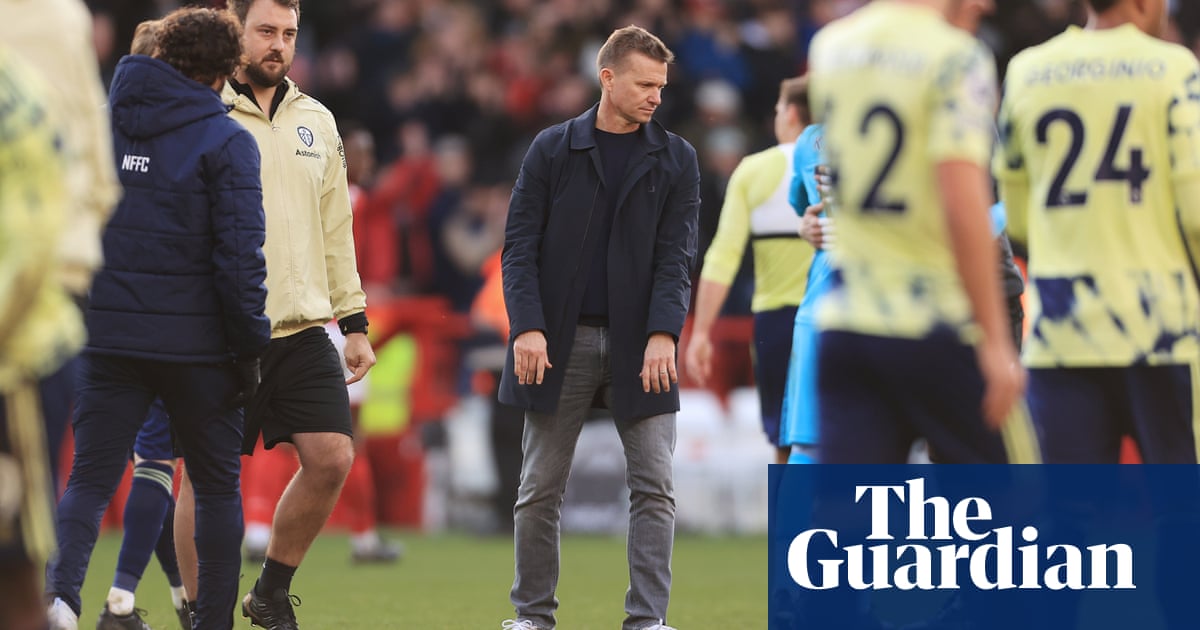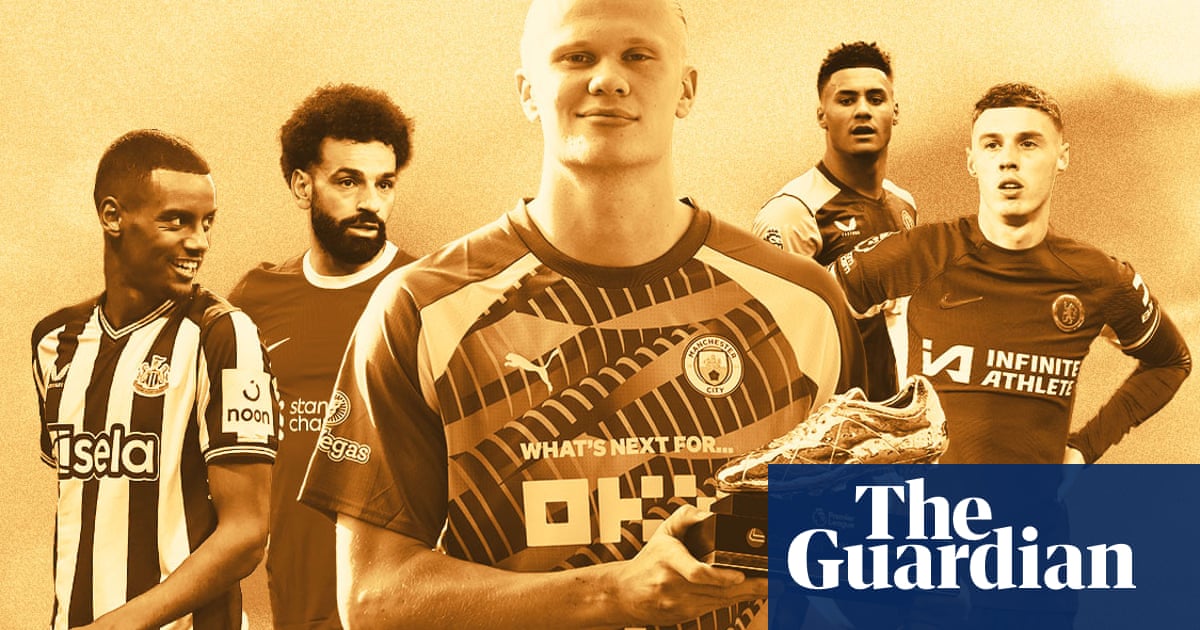
Jesse Marsch had a point to make. He made it rather well and at length. Given a chance to be a pundit on Sky Sports’ flagship Monday Night Football last month, the Wisconsinite zoomed around the studio’s touchpad with the same zest he would expect of high-pressing players. His casual garb of stonewashed jeans and shiny white sneakers did not deflect from the fact that this was a presentation aimed at future employers, club owners; MNF has become a regular vehicle for unemployed managers to announce they are ready to work again.
“I love the Premier League and I love the power of what the league means globally, but honestly the true answer is I want to find like-minded people that are committed to developing people, relationships and building something,” he said. If Jamie Carragher occasionally harrumphed through the 45-minute coaching masterclass, little doubt was left that Marsch is detailed and has an authentic grasp on modern football.
Few sensible Englishmen will object to their favourite game being called “soccer” but there remains a resistance to – and a mockery of – US football terms even when there is a near-majority of Premier League owners from across the Atlantic (the EFL is also flush with American investment). The Norwich manager, David Wagner, a former US international who speaks in the lingua franca of European football due to his German upbringing, has not come up against anything like the same resistance. Though perhaps English football is merely waiting for an American coach whose quality, charisma and achievements make him a slam-dunk candidate for a top job.
After all, the idea of an Australian leading a ‘Big Six’ Premier League club seemed unlikely until Ange Postecoglou came along, and for all the amusement taken at his accent and phrasing, doubts over his credentials have dissipated. He’s currently linked with the imminent Liverpool vacancy. Thus far, the two US-raised Americans who have managed Premier League teams – Marsch at Leeds and Bob Bradley, at Swansea for a painfully short spell in 2016 – have not been able to command the same respect.
As the US’s prime coaching export, and with that high proportion of American owner-investors, Marsch was long likely to wash up in the Premier League, particularly given English football’s habit of grabbing talent from German clubs. His Red Bull credentials were especially useful. The multi-club organisation that owns New York and Red Bull Salzburg, plus RB Leipzig, is admired as a talent factory, its clubs sharing a coaching philosophy, a “DNA”, to use that scientifically incorrect buzzword.
For Marsch, Leeds turned out to be the wrong club. He succeeded Marcelo Bielsa, a demi-god in Leeds and the club’s most popular manager since Don Revie – and that includes Howard Wilkinson, who managed them to the title in 1992. As has happened throughout the Rosario maestro’s career, Bielsa’s high-pressing, ultra high-risk approach had eventually frayed his squad to the point of dissolution.
It also turned out that one high-pressing approach is not the same as another. Marsch narrowed down a team that had previously used its width, and proved unable to arrest both the issues of scoring goals and conceding them. He was also unlucky that, having kept Leeds from relegation, he lost senior players in Kalvin Phillips and Raphinha, who were sold the following summer.
“I don’t want them to chant my name, I want them to chant who we are,” Marsch said after a last-gasp defeat of Brentford kept Leeds up, one he celebrated wildly, as if vindicated. “This is not about any one person and it’s certainly not about me.” Eventually the blame landed heavily on his shoulders.
Leeds can be a parochial club, although the fans had previously accepted an upper middle-class Argentinian as one of their own. Marsch struggled for currency in the same place another American, Eddie Lewis, had been a cult hero in the mid-2000s. That the club was moving towards 100% ownership from the 49ers Enterprises Global Football Group could not protect him, and neither could the club’s US players, Brenden Aaronson, Tyler Adams and Weston McKennie, prevent his sacking in February 2023.
That Marsch was a live candidate for jobs at Leicester and Southampton later that season suggested the boardrooms had not given up on him quite yet but he admitted in December: “I wasn’t ready to jump back in”. It’s possible he has already missed his shot at a further opportunity but his recent publicity drive suggests he wants the second chance that never came for Bradley, whose time in the Premier League at Swansea ranks as an unfortunate misadventure. Bradley, previously linked with jobs at West Brom, Hull and Sunderland, arrived at a south Wales club on a downturn. Again, American investors played their part in his hiring but their own unpopularity in the city meant he could only last 11 games and 85 days in which Swansea conceded 29 goals.
Bradley, quiet and considered, had done good jobs in Norway with Stabæk and France with Le Havre to follow his USMNT achievements and spoke well enough in his unveiling at a Swansea hotel, though talk of “PKs” and “road games” drew smirks from assembled hacks. A madcap 5-4 win at Crystal Palace remains memorable but Sky’s Soccer AM developing the character of “Brad Bobley”, a series of cruel sketches that have aged terribly, said more about its creators than its target. Six years later, Marsch was received far more respectfully but Bradley departed as a stranger from the league it had been his long-held ambition to make an impact in.
Bradley inherited a group who had served under three managers in four years and were yet more unresponsive to him. “Trust me, not one of those players knows who Ronald Reagan is,” Bradley said, responding to accusations players had mocked his tactics as being from the 1980s.
Similarly to Marsch, circumstances were not on his side but the truth of the majority of managerial appointments is that they follow someone else’s failure. Marsch, or AN Other, may need to take on a club that’s better set for the optimum chance of establishing the credibility of American coaches within English football. Once that happens, others are bound to follow.












